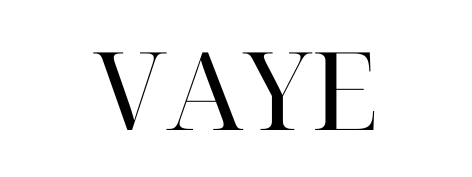
How to create a budget you can actually stick to
Share
You've probably tried it before: creating a strict budget, calculating everything neatly, maybe even in an Excel spreadsheet. The first week is fine, but after that, it gets tough. Because life can't always be categorized. And neither can money.
The good news? A budget can actually be incredibly effective if you adapt it to your lifestyle—not the other way around. In this blog post, I'll show you how to create a budget you can actually stick to. Stress-free, frustration-free. Simply in a way that works for you.
What is a budget anyway?
A budget is, simply put, a plan for your money. You decide in advance how much you'll spend on what, so you don't spend more than you earn. But it's not just about restriction. A good budget actually gives you freedom. You know where you stand and can make informed choices.
Why do so many people fail?
Because many budgets are too tight. Or because they're designed as a punishment instead of a tool. Many people forget to allow for spontaneous expenses or overestimate their chances. And if you do spend outside of your plan, it feels like a failure. That's counterproductive.
How to create a budget that works for you
1. Start with your real numbers
Not what you hope to earn or think you'll spend, but what actually comes in and goes out. Look back at your bank statements for at least three months and categorize your expenses: fixed costs, groceries, leisure time, and so on.
2. Give every euro a destination
For example, use the zero-based budgeting principle: your income minus your expenses = zero. This doesn't mean you have to spend everything, but that you give everything a place—including savings, repayments, and fun money.
3. Make it flexible
Allow for variable costs and unexpected expenses. For example, create a "windfall pot" or a "miscellaneous" category. This way, you prevent a single unexpected expense from throwing your entire plan off track.
4. Take your lifestyle into account
Are you someone who enjoys spontaneous dining out? Then plan accordingly. Do you prefer weekly grocery shopping instead of daily budgets? Choose what works for you. The more you identify with your budget, the better you'll stick to it.
5. Check your budget regularly (and without judgement)
Schedule a weekly or monthly time to review your overview. What went well? What took longer? What do you want to adjust? Think of it as a check-in, not a control. Budgeting isn't a one-time action, but a rhythm.
Tools that can help
- A simple spreadsheet (or notebook)
- Budget apps
- A cash stuffing system if you like to work with cash
It's not about what you use, but about choosing something you know you'll keep working with.
Avoid common mistakes
Even with a good budget plan, you can still run into problems. Here are some common pitfalls, and how to deal with them:
1. Planning everything too tightly
If you've already "fixed" every euro and left no room for ad hoc things, your budget can quickly feel like a straitjacket. Leave room for the unexpected. Consider a flexible fund of €50-€100 per month that you decide on yourself.
2. Punishing yourself for a misstep
Going over your budget once doesn't mean you've failed. It means you've learned something about how your life works. Evaluate, adjust, and keep going. You don't need a perfect grade—it's not a test, it's a tool.
3. Forgetting to connect it to your goals
A budget isn't just about keeping money in check. It's a tool to help you get closer to your goals. Link your savings to something tangible: your savings, a city trip, or a course of study. This way, you'll stay motivated and have a clear overview.
4. Wanting to do everything digitally when that doesn't suit you
Not everyone enjoys apps. If you prefer visual work or writing things down, that's perfectly fine. Use colored markers, print a monthly overview, or work with a whiteboard on your refrigerator. Make it personal.
5. Keeping your budget a secret
Talk about it. With your partner, roommate, friend. If others know you're consciously managing your money, they'll understand your choices better and can even help you remember your goals.
Make it something you want to use
Budgeting doesn't have to feel cold or businesslike. In fact, it works better when it becomes your own. Name your savings accounts something you enjoy. Make your fixed-expense overview visual. Reward yourself with a small treat after sticking to your plan for three months. It's your system. It can be fun.
Finally
A budget you can stick to starts with taking yourself seriously. Don't restrict yourself, but help yourself. With a plan that gives you breathing room and suits who you are.
Because managing your money well isn't about being strict. It's about being honest. And if you succeed, a budget is no longer a limitation but rather your greatest freedom.
